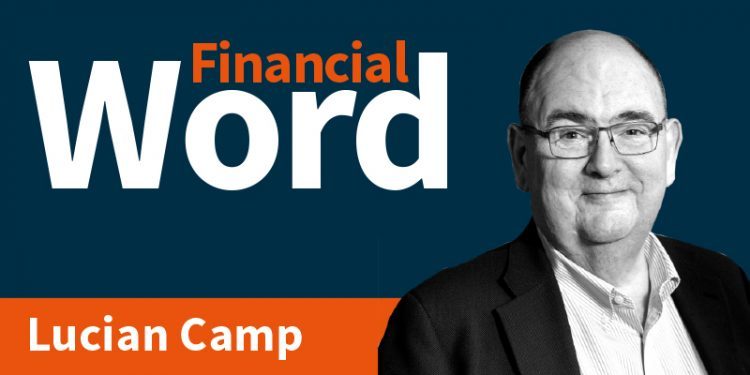In Lucian’s first Financial Word of the year, he discusses why defining an offer in terms of risk is so counter-productive.
Why risk should not be central to your proposition
I think my favourite kinds of lightbulb moments are the ones when it dawns on me that concepts, or ideas, or even just words, that mean one thing to people who work in the industry mean something very different to real people who don’t.
I came across a perfect example recently in a research project originated by Boring Money chief Holly Mackay and led by brainy behavioural psychologist Paul Davies, looking at the meaning of that four-letter word so prominent on the investment side of our industry, “risk.”
Here’s the thing. In the industry, risk is a neutral word. Like, say, “road,” or “weather,” or “health,” it has no connotations, positive or negative, until you add more words to describe it. “Weather” is just weather. But sunny weather, or wet weather, or terrible weather, or changeable weather, all have their own particular flavour.
To us, risk is the same. It’s neither good nor bad till you add something to it. High risk, or low risk, or hedged risk, or short-term risk, or market risk, or whatever, all mean something specific. Risk itself doesn’t. But to consumers, risk isn’t like this at all. Risk isn’t a neutral word, like weather. It is, in itself, a negative word, like for example “illness” or “damage.” Sure, you can add other words that colour it more precisely – you can have a serious illness, or a minor illness, or a long illness, or a painful illness, and so on – but all illnesses are bad.
The point of all this is to highlight how incredibly unhelpful it is for the vast majority of investment providers, and investment advisers, to lay out their funds, or portfolios, or whatever, in terms of their level of risk. In fact, the whole business of selecting investments revolves around establishing the right level of risk for the individual, or at least for the particular pot of money that the individual wants a home for.
This, I now realise, is analogous to an airline laying out its timetable in terms of the likelihood of the planes on its various routes crashing. Or, to take a rather less dramatic example, a restaurant listing its dessert menu in terms of its various options’ calorie count. This would be a very bad idea in two different ways. The more obvious is that customers would feel massively obliged to choose from the list’s lower-calorie end: sorbet sales up, sticky toffee pudding sales way down. But the less obvious is that an awful lot of customers would decide that actually, you know, come to think about it, I really shouldn’t have a dessert at all, especially since I did have chips with my main course. That would be bad for the restaurant, and bad for many of the customers too, depriving themselves quite unnecessarily of the pleasure of that sticky toffee pudding.
That’s what would happen if you presented desserts primarily in terms of calories, and it’s what happens when you present investments primarily in terms of risk. And one final point on this – it’s mostly nonsense anyway, because the reality is that (unlike with desserts) pretty much everyone either does make, or should make, the same choice – namely, the middle one.
In closing this piece, I want to make it very clear that I’m not suggesting we should hide or understate the risks of investing. We should be absolutely clear and straightforward about them. It’s focusing on risk as the main basis on which we structure our proposition – fundamentally defining our offer in terms of level of risk – that’s so counterproductive.
I appreciate that actually doing anything about this Eureka moment isn’t easy, not least because the regulator is so insistent that we have to put so much effort into frightening people off. But I do think the new generation of robo advisers and other investment fintechs are going to find it horribly difficult to achieve their market-broadening aims until things change.
Written by Lucian Camp, Lucian Camp Consulting and co-author of No Small Change.

